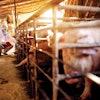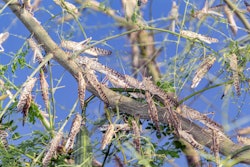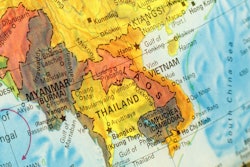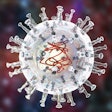
Leading international agencies for animal health and agriculture have called for a new joint approach to tackling African swine fever.
Causing mortality of up to 100% in infected pigs, African swine fever (ASF) has become a major crisis for the pork industry, according to the World Organisation for Animal Health (OIE), and the United Nations’ Food and Agriculture Organization (FAO).
With the disease now affecting 51 countries, and heavy losses of pigs that have had devastating effects on economies, the two agencies are calling on all countries to come together and adopt a new Initiative for the Global Control of ASF. The primary aim is to help countries to control the disease by adopting OIE standards and best practice. Furthermore, it is hoped the initiative will form a framework for more effective coordination and cooperation to tackle ASF, as well as supporting business continuity.
Building on existing regional efforts to control the infection, the initiative will strengthen national veterinary agencies’ abilities to manage the threat of ASF, and help stakeholders to identify risk pathways and high-risk practices.
ASF spreads to new area of Russia’s Far East
Outbreaks were first reported in the vast Far Eastern federal district of Russia about one year ago. Previously confined to a few localities, ASF has now spread to Zabaykalsky krai. In an official report to the OIE, the Russian agriculture ministry has registered the disease in two village herds in the same district. A total of 940 pigs were involved, including 107 deaths.
Source of the infection is unknown, but the krai borders Amur oblast, and shares international frontiers with China and Mongolia—all of which have recorded ASF outbreaks.
Also in the Far Eastern district is Primorsky krai, where a further two new outbreaks of ASF have been confirmed in small backyard herds involving a total of 12 pigs.
Further losses in the Philippines
Last week, it was reported that ASF had returned to the province of North Cotabato on the island of Mindanao.
Now describing the ASF situation in the area of Magpet town as a “state of calamity,” the Philippine News Agency reports that a further 260 pigs have been culled to control the disease. These animals belonged to 81 owners. Each of the owners will receive 5,000 pesos (US$101.00) for each pig over 40 days of age that is lost as the result of the official cull. So far, the number of animals lost in this way in the area is approaching 400.
Africa: ASF detected in two more states in Nigeria
Presence of the ASF virus has recently been confirmed in the states of Edo and Plateau, according to the latest report to the OIE. After its detection in Lagos, Abia and Ogun since May, Nigeria’s agriculture ministry has reported to the OIE that the disease is now present in five states.
While the scale of the losses are unclear, local media have reported mortalities approaching 1 million pigs.
Having registered the first in a series of ASF outbreaks in April 2019, South Africa’s agriculture department has reported to the OIE that no new cases have occurred since mid-May. All 20 of the outbreaks confirmed so far took place in areas outside the country’s ASF Control Zone.
Europe: New cases in small herds in Poland, Romania, Russia
There has been a further outbreak in Poland, bringing the country’s total so far this year to seven. Latest to be affected was a farm with 10 pigs in the village of Wola Wschanska in Lublin province in eastern Poland, according to the national veterinary office.
Over the past week, Romania’s animal health agency has confirmed to the OIE a further eight outbreaks among backyard herds. Affected was a total of 39 pigs in groups of between two to 18 animals.
In western Russia, the ASF virus was detected in backyard herd of two pigs in Samara oblast. One of the animals died, and the other has been destroyed, according to the OIE report.
Further cases among wild boar in central Europe, South Korea
Four European countries have recorded new cases of ASF among their respective wild boar populations over the past week.
At 170, the highest number of newly reported cases was in Poland. All were found in eastern provinces between February 23 and March 20. Reporting cases confirmed in the past few weeks were Hungary (43 animals), Romania (9) and Russia (2).
Over the past week, South Korea’s agriculture ministry has reported to the OIE a further nine cases of ASF among wild boar. All were found in the northern provinces of Gangwon and Gyeonggi, where previous cases have been confirmed since last year.
After just one case of ASF in a wild boar detected in January, Russia’s agriculture ministry has reported that the ASF situation has been “resolved” in the Baltic Sea oblast, Kaliningrad.
View our continuing coverage of the global African swine fever situation.

















